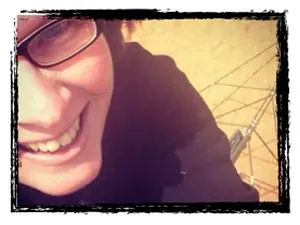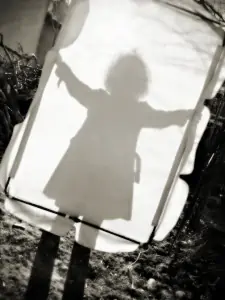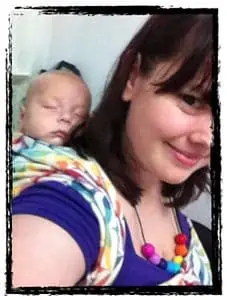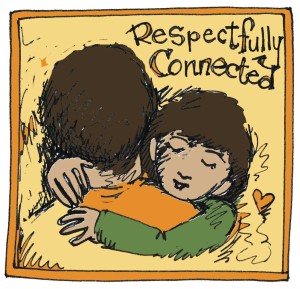
Respectfully Connected: Interview with the Authors
Autism Women’s Network is dedicated to building a inclusive community for Autistic women and girls of all ages, their families, friends, and allies to support one another and share experiences. This month, we are excited to share the first of a short series of posts featuring several authors of the innovative new blog “Respectfully Connected: Journeys in Parenting and Neurodivergence.”
While ALL of the authors are phenomenal, the ladies whom we have interviewed are Autistic women and/or have an Autistic daughter. We hope you will enjoy getting to know more about this project and some of great people behind it! We also hope that you will take the opportunity to check out the Respectfully Connected blog as well as their Facebook page.
Interviewer: Morénike Giwa Onaiwu
Participants: Cat Walker (C), Michelle Sutton (M), Naomi Callaghan (N), and Jaime Franco (J)
1. Are you Autistic, and/or do you have an Autistic daughter? Are any other members of your family also Neurodivergent?
C: Yes I am Autistic. Two of my family members are Neurodivergent.
M: We are a family of 8. I have one Autistic daughter, who also has significant sensory processing challenges. I also have one Autistic son, 2 bipolar family members, and 1 who experiences very high levels of anxiety. I myself experience depression as a normal part of life and relate to a lot of the same sensory challenges as my daughter but on a much lesser level.
N: Yes, I am autistic, and my youngest daughter is autistic. So far we are the only neurodivergent family members.
J: I think that both my daughter and I are autistic. Neither of us have diagnoses but that may be something we look into in the future. My husband is diagnosed as autistic and some or all of our other children may or may not be neurodivergent also.
2. What five words best describe your family?
C: Different, accepting, joyful, tenacious, determined.
M: Only five words? That’s not even one per family member!! Hmmmm……
Diverse. Divergent. Eclectic. Resilient. Learning.
(PS: When I asked my daughter what five words to describe our family are, she said, “didn’t you used to say we are your own personal tornado?”
Hubby replied, “that’s only 4 words”!!!)
N: Awesome, LOUD, bouncy, funny, curious.
J: Neurodiverse, numerous, passionate, joyful, chaos.
3 All of the authors of “Respectfully Connected” have a parenting style that “differs” from the status quo in some way (attachment/gentle parenting, homeschooling or unschooling, etc). Share some of the “differences” that apply to your household.
C: We try our best first and foremost to treat our children as individual human beings deserving of respect and compassion. We try to model the type of behavior we hope to see in our children including forgiveness, honesty and owning up to our own mistakes. It is a tremendous joy to be able to parent these children and I found once we were able to follow our own instincts more closely, there was a deeper connection to our children. Understanding and accepting that behavior is communication in children has also made for a deeper connection to our children. We homeschool and I take great joy in learning along with them.

N: We homebirth, co-sleep, homeschool/unschool, attachment parent. My partner and I believe that children deserve respectful communication, and we don’t use corporal punishment. We’ve done most of this (my eldest goes to school) with all our children from birth.
J: We’re radical unschoolers at heart (although school has a place for some of our children through factors outside our control) and so every day is filled with learning through life. We wear our children- all 4 of them, ranging from 3 months to nearly 8 years. Our house is one of food, sleep and learning freedom.
4. What are some of the ways that you feel that your parenting style supports your child’s needs?
C: We don’t take a one size fits all approach to parenting our children. They are very different people and accordingly, have very different needs at times. At the heart of our parenting is respect. To me, that’s what it all boils down to. If children feel respected as people, I’ve found everyone to be much happier.
M: I have always taken a “make it up as you go” approach to parenting. This means that I give myself permission to let go of what I think people expect of me, to ignore the “shoulds”, and to do what seems best for the kids at the time. The result of this is that I often feel underprepared and a bit overwhelmed, but at the same time, the kids have a mother who is not trying to force conformity and compliance for the sake of blending with society. I listen to the kids and trust they know what they need, and do my best to support them in that. I try to be a partner with them as they explore the world, and to offer my experiences to them as wisdom if they want to draw on it, recognising that mostly they just need to do their thing and learn their own way with me as a back up for when things don’t go quite how they planned. And I apologise when I stuff up.
N: Because one of the basic foundations of attachment parenting is it respond to your child’s needs, it kind of just flows. Attachment parenting talks about how young babies and children express their emotions as ways of communicating – so they cry when they are sad or frustrated, they yell when they are mad or upset, the get bouncy and shriek when they are happy etc. Since NinjaGirl is nonverbal, we need to rely on her nonverbal communication skills to understand her. That concept can sometimes be hard for parents to wrap their brains around, but we’re a bit more familiar with it because we were already doing it.
Another way that our parenting style helps support NinjaGirl is with its flexibility. We aren’t bound by strict routines or bedtimes or ways of doing
Attachment parenting also talks a lot about not restricting comforting your child – whether that be via cuddles, breastfeeding, babywearing, co sleeping. NinjaGirl is a very snuggly child, she loves cuddles and body contact. It soothes her (and me), and has really promoted a strong bond between her and both parents. My partner did a lot of babywearing when she was little, and they have a very close, trusting relationship.
J: Wearing our children in wraps and carriers help them to be on our level, it eases their anxiety in social situations or crowds, gives them a new vantage point to learn from and provides deep pressure when necessary. Food freedom, bedtime freedom and unschooling help them listen to their instincts and supports them to ask for help when they need it. They also are understanding, each at their own levels, how to respect their siblings needs- and ours too.
5. How did you come to learn about the concept of neurodiversity? How did it impact your life and your interaction with your family?
C: I read a lot and have come across it on a lot of the autism blogs. I think it’s had the biggest impact by helping me identify my own autism and realizing that everything I am and believe in isn’t bad or wrong. It’s just my own uniqueness. By uncovering my our neurodivergence, I’ve really been able to notice and understand it better within my own family.
M: I learned about neurodiversity as I met new friends online within the community of Autistic Activists and Advocates. The five greatest influences on my thinking in the early days of my exposure to these new ideas were Kassiane (NeurodivergentK), Ibby Grace, Nick Walker, Amy Sequenzia and Sparrow Rose Jones. I met them at a time when I was really struggling with the difference between how I felt about my kids Autism diagnoses and what I could see society expected me to feel. I couldn’t see my kids as disordered or broken- they just needed some more support. Finding others saying the opposite of what the main discourse about Autism was a welcome relief to me. It gave me confidence to do things I suspected were right even though professionals advised differently. It also gave me the gift of community and the knowledge there is a tribe waiting for my kids whenever they are ready to venture into the world of the internet.
N: I’ve been a feminist for a long time, so things like equal rights, disability rights and intersectionality were already rumbling around in my head
when we started to wonder if NinjaGirl was autistic. It just made sense that the best voices to listen to when learning about autism would be those of autistic people. And after reading some of the conventional information about autism, and what it was and wasn’t, it just didn’t seem to fit well at all with my understanding of intersectionality or disability, or equal rights. I found several pages on Facebook written by parents who parented in similar 
J: I’ve known for a while that my husband and I are both Autistic. We both had separate experiences being introduced to Autism but each came to the conclusion that if this was us, it must not be a bad thing because we’re awesome! When we met and later became a family unit, we knew that meant that our children might be Autistic also. I started doing research about Autistic children and found a lot of horrible stuff, not only from the point of view of an Autistic person who was once a child, but also from the point of view of the attachment parent I was already becoming. Once my daughter was born, I knew that I could never go along with those suggested therapies. We found the answers in radical unschooling; what could be more perfect for her than absolute acceptance of who she is? From there I’ve learned more about the theory of neurodiversity and also the neurodiversity paradigm (vs. the pathological paradigm).
6. What would you say are your child’s greatest strengths and how do you encourage/build them?
C: They have some of the biggest hearts I have ever encountered. I try very hard to regularly affirm to them how wonderful and loved they are just the way they are. They are unique individuals who think for themselves and sometimes question everything. I do my best to explain things to them that they question or may feel unsure about. I’ve always found that the more I explain why things happen a certain way, or why we need to do something a certain way, they are much more receptive.
M: I’ll answer this one specifically about my Autistic daughter, who is known online as MissG.
MissG is amazing at drawing, creating, designing, crafting and constructing. As she is homeschooled, I use this ability and interest as a way to help her learn pretty much everything! As she learns maths and science and other things she is also developing her skills in creativity at the same time as engaging in activities she finds soothing.
MissG is also very good at compassion. She gets very attached to the chicks we breed and raise and loves to spend time holding and loving them. She is great at knowing when her younger brother is upset and does not hesitate to offer comfort even if it means letting him use something special of hers that she was already using. She feels so strongly that sometimes it overwhelms her, and I suspect this is part of the reason why she doesn’t make it through a whole movie and finds being around other people for more than short periods really draining.
N: NinjaGirl’s greatest strengths would have to be her curiosity and her sense of humour. She has an incredibly dry and sharp sense of humour for a 4
year old. She has a great love of slapstick style humour, which is pretty common in little kids. One of her favourite things is to watch something she find funny on a DVD and then rewind to watch, again and again. She will grab one of us and bring us over to sit with her, watching and laughing, and then looking at us to see if we are laughing too.
Her curiosity is a source of joy and mess here. NinjaGirl loves to explore different sensory experiences. We make sure we have a variety of different options for her – an outside bathtub for lots of waterplay, several swings and a hammock, playdough, pencils, dirt, sand. Messy play is something all our kids love. It’s good for them, good for their bodies and minds. NinjaGirl also loves books. It is pretty common to find her tucked up somewhere with a book in front of her or on her lap. She is more partial to non fiction picture books than storybooks at this point, and has only just started to come over and listen when I’m reading to her brother, but I think I would say books rate in her top 4 things to play with (number 1 being eggs, if she can get her hands on them lol).
J: Our oldest 2 are loving learning all about how things work; car rides are a free for all with my husband and I answering whatever questions are thrown at us as best we can. Our toddler is an avid explorer, both of her physical space and also of her limitations. Due to this, we have done what we can to make our house a space she can always explore.
7. How did you become involved with the “Respectfully Connected: Journeys in Parenting and Neurodivergence” blog? What has the experience been
like for you so far?
C: I am thrilled to be one of the blog’s contributors. It has been such a joyful experience to both write and connect with these women who share the
same parenting philosophy.
M: My involvement with Respectfully Connected was pretty much a ‘right place right time’ thing I think. I knew a couple of the other people involved through other projects and from blogging circles the past couple of years. I was keen to get involved because I could see there was no other project around doing exactly what Respectfully Connected is trying to do. I love that it is a group project involving so many authors, and I believe one of Respectfully Connected’s greatest strengths is the diversity of voices and experiences represented. The authors do have lots in common but their individual experiences and variety of storytelling styles serves to make the blog capable of reaching such a wide audience. It has been an incredibly positive experience, both getting to know all the wonderful women involved and seeing how well received the blog has been and how quickly the Facebook community around it is growing.
N: I crossed paths with a few of the other contributors in various Facebook groups, and was invited to one particular group where we were all hanging out together, talking about and supporting each other with parenting our kids gently, when the idea for Respectfully Connected was raised. I’ve always loved writing, and I love writing about things I have a strong passion for. Having the opportunity to write about something so close to my heart, and which seems to be missing from much of the discussion around parenting autistic children – as well as hearing from autistic parents – was something I couldn’t pass up. I’m on a constant learning curve. There is such a wide variety of experiences and skills within the group, and the support is so fantastic. I know that when I have a moment of doubt about what I’ve written, I can share that with the group and get the feedback I need to either be more confident with my writing, or to try a different approach. It feels very much like a team, where we enjoy and respect each other’s writing styles and experiences, while at the same time encouraging each other to branch out in ways we might not have thought of ourselves.
J: I became involved in the project after taking part in a conversation discussing the idea. I’ve loved being a part of it so far. I’ve enjoyed being able to write whenever inspiration strikes, knowing that with so many of us contributing we have plenty of content with a wide range of experience and points of view but also a basis in common ground.
8. What makes you happy? What makes your child/ren happy?
C: I am a voracious reader of fiction and would probably let the house fall apart around me if it allowed me to finish a good book! I love to travel with my family and am a novice knitter. My children are happiest exploring as a family and playing video games and Lego.
M: Things that make me happy? My kids laughing, hanging out with my husband, gardening, tending to my chickens, writing, seeing the kitchen benches clean, washing drying on the line, time spent with girlfriends sharing stories, taking photos of pretty things in my garden and around my local community. I see happiness as different than contentedness. Happiness is intense and can be fleeting. Contentedness is more about a deep seated sense that things are as they should be. Things that give me a feeling of being content are the knowledge that each of my kids needs are being met, acknowledging that I am satisfied with my life even though it isn’t what I thought I wanted when I was younger, and having community around me that values my family just as we are.
Things that make my kids happy? That would be a long list and I’d likely miss stuff…. but I can definitely say they are most content when when I treat them with respect and trust them to know themselves well enough to be their own best advocates.
N: My kids make me happy, and so does my partner. I like being in my home, and in my gardens. It sounds very domestic, I guess. I like creating things, whether that is with words or with my hands. I do a lot of crochet, and I like to sew and stitch, although I haven’t had much opportunity to do that lately. I love gardening (I’m a horticulturalist by trade). I love getting my hands in the dirt! My kids like getting their hands in the dirt too, although sometimes the “help” in the garden is not as helpful as they think lol. NinjaGirl loves to dance, and to sing along to her favourite DVDs. She might not use words, but she holds a decent tune! Climbing is also a big hit here, and drawing, and bouncing.

areas of hyper-focus, although I cycle through the different forms in time.
Our oldest child loves understanding physical things. He builds with lego to try and replicate the forms of objects, reads books and always asks questions to learn more. Our next child is a real artist. She makes drawings, books and paper sculptures. The next loves music. She was so auditory in the womb and also as a baby. Now at 2 will sing along to her favouite songs or movies and has taught herself to whistle so that she can replicate the Disney and 20th Century Fox theme musics that go along with their logos which appear at the beginning of her favourite movies. Our youngest is only 3 months at the moment so it seems that nothing makes him happier than milk!
9. What do you hope others can gain from reading about your family’s journey?
C: Our neurodiversity isn’t something to be feared. By embracing and accepting our differences, we have found great joy in one another.
M: I think all stories hold encouragement for other people. Sharing our journeys helps us know we aren’t travelling alone, and gives us access to so much more wisdom and experience than we have on our own. I have learned so much, and received life changing support from the online Autism and pro-neurodiversity communities, and I hope that my story will in some way contribute the the positive dialogue.
N: I guess I hope that people will see that you don’t have to follow the rules. That you can build a life with your family, with your children, that suits what your needs are, not what you “ought” to do. And I really hope that they can see that the biggest rules worth discarding are the ones about how parenting an autistic child “ought” to go. That the best person to guide them on what their child needs is their child – not professionals, not therapists, not other parents. I hope that other autistic parents read what I write and feel less alone.
J: Just that having a child with Autism is having a child. They may have different neurology, but they are still deserving of being respected and loved. In our family, our children are just the people they are; people with strengths and struggles like any
10. Is there anything else that you would like to share?
C: It’s very exciting for me to be involved in the Respectfully Connected blog project. Having only very recently identified my own neurodivergence, it makes me very happy to be a part of such a knowledgeable and supportive group.
M: Can I encourage any parents of newly diagnosed kids to actively seek out the writings of Autistic adults? There is no better thing you can do in the few months after diagnosis.
(And would it be really cheeky to leave a link to where I can be found online? www.facebook.com/
N: Not right now, I feel pretty shared out, lol.
J: No thanks.
About the Author, Morénike Giwa Onaiwu


